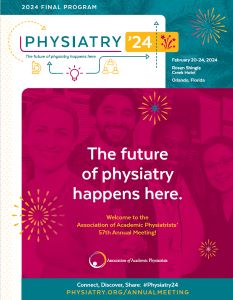Multiple Sclerosis and other Neurological Conditions
Poster Gallery
428 - Acute Rehabilitation of Disseminated Nocardia Encephalitis: A Case Report
Friday, February 23, 2024
5:00 PM - 6:30 PM EDT
- DO
David G. Oria, DO
Physician
MedStar Georgetown/National Rehabilitation Hospital
Washington, District of Columbia, United States
Presenting Author(s)
Case Diagnosis: 65 year old man with disseminated nocardia encephalitis
Case Description: This case details a 65 year old male, with a history of prostate cancer undergoing chemotherapy, diagnosed with acute disseminated nocardia encephalitis who presented with a new onset of diffuse weakness, confusion, vision changes and headache. Initial imaging studies, which included computerized tomography (CT) of the head and thorax, showed no acute abnormality. Lumbar puncture was consistent with acute encephalitis. The patient received empiric antibiotics with minimal improvement of his cognitive symptoms. Subsequent magnetic resonance imaging (MRI) brain showed innumerable enhancing lesions with increasing cerebral edema. He received intravenous steroids with some improvement in cognition. The brain biopsy revealed disseminated cerebral nocardiosis. Despite initial improvement, cognitive limitations and functional deficits persisted and he was admitted to acute inpatient rehabilitation. He displayed unique functional limitations with cognition including attention, visuospatial skills, initiation, insight, memory, organization. He completed a 15-day multidisciplinary rehabilitation course with focused cognitive rehabilitation, neuromuscular education, and proprioceptive training.
Discussions: Nocardia encephalitis is a rare opportunistic infection which can manifest in a variety of ways. When involving the central nervous system, it can cause unique functional limitations including attention, visuospatial skills, initiation, insight, memory, organization, as well as, mobility, fine motor coordination, communication, and sustained cognitive effort present distinct functional deficits and barriers to discharge.
Conclusions: This case report outlines a notable approach to rehabilitative treatment for this unique neurologic phenomena with detailed functional outcomes. Although uncommon, it is beneficial for physiatrists to be aware of the association of nocardiosis with specific functional deficits which may be crucial for the benefit of multidisciplinary acute rehabilitation.
Case Description: This case details a 65 year old male, with a history of prostate cancer undergoing chemotherapy, diagnosed with acute disseminated nocardia encephalitis who presented with a new onset of diffuse weakness, confusion, vision changes and headache. Initial imaging studies, which included computerized tomography (CT) of the head and thorax, showed no acute abnormality. Lumbar puncture was consistent with acute encephalitis. The patient received empiric antibiotics with minimal improvement of his cognitive symptoms. Subsequent magnetic resonance imaging (MRI) brain showed innumerable enhancing lesions with increasing cerebral edema. He received intravenous steroids with some improvement in cognition. The brain biopsy revealed disseminated cerebral nocardiosis. Despite initial improvement, cognitive limitations and functional deficits persisted and he was admitted to acute inpatient rehabilitation. He displayed unique functional limitations with cognition including attention, visuospatial skills, initiation, insight, memory, organization. He completed a 15-day multidisciplinary rehabilitation course with focused cognitive rehabilitation, neuromuscular education, and proprioceptive training.
Discussions: Nocardia encephalitis is a rare opportunistic infection which can manifest in a variety of ways. When involving the central nervous system, it can cause unique functional limitations including attention, visuospatial skills, initiation, insight, memory, organization, as well as, mobility, fine motor coordination, communication, and sustained cognitive effort present distinct functional deficits and barriers to discharge.
Conclusions: This case report outlines a notable approach to rehabilitative treatment for this unique neurologic phenomena with detailed functional outcomes. Although uncommon, it is beneficial for physiatrists to be aware of the association of nocardiosis with specific functional deficits which may be crucial for the benefit of multidisciplinary acute rehabilitation.

